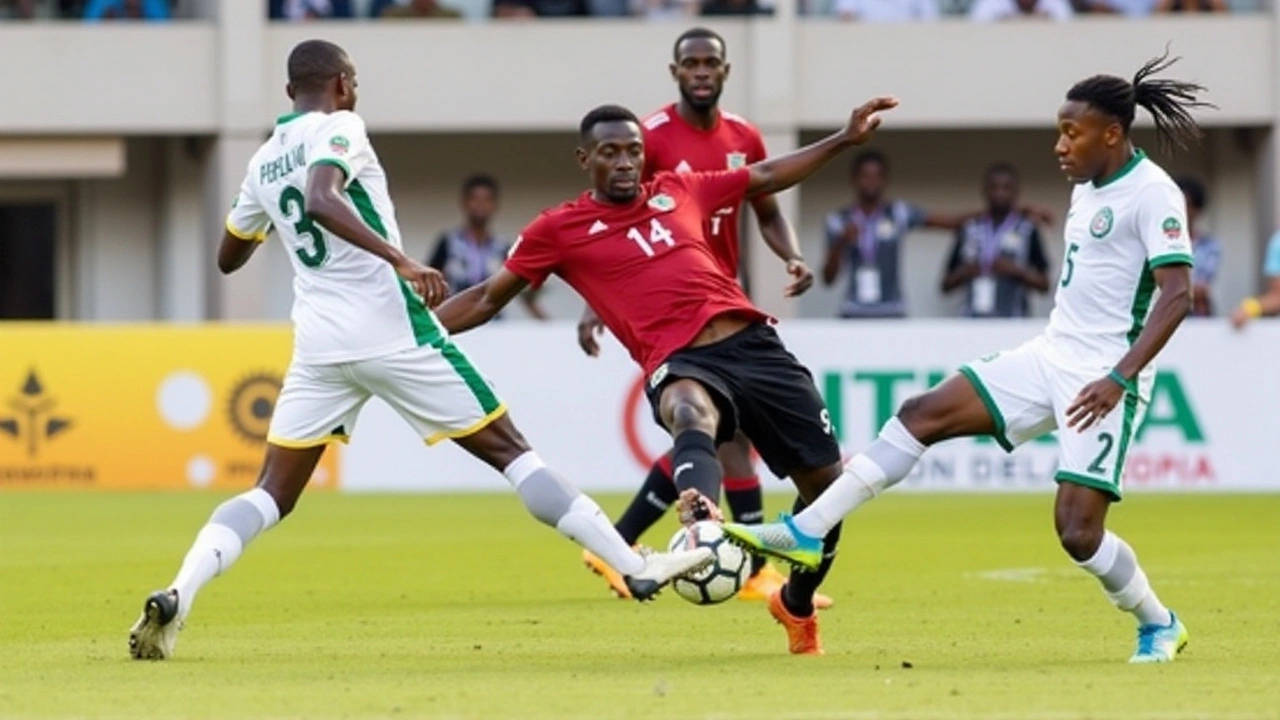CAF Delists Nigeria vs Libya AFCON Qualifier Amidst Match Controversy and Allegations
 Oct, 16 2024
Oct, 16 2024
CAF Cancels Nigeria v Libya AFCON Qualifier in Controversial Move
The Confederation of African Football (CAF) has made headlines with its decision to delist a crucial AFCON 2025 qualifier match, initially scheduled between Nigeria and Libya. The fixture, part of Group D, was eagerly anticipated by football fans across the continent, particularly because of the Super Eagles' dominant 1-0 victory in the first leg at Godswill Akpabio Stadium in Uyo, Nigeria. Unfortunately, the second-leg match, which was set to be hosted in Libya on October 15, 2024, came to an abrupt halt following an escalated controversy.
The Unforeseen Halt to Sports Diplomacy
Nigerian football fans experienced a wave of excitement and hope after their team’s narrow yet important win at the Uyo Stadium. With the Super Eagles poised to secure their spot for the prestigious African tournament, momentum seemed on their side. Plans shifted tragically when reports emerged of Nigerian players and officials being left stranded at Al Abraq International Airport in Libya. Witnesses recount a plot almost too unrealistic for this modern era, as athletes and staff lacked basic necessities including food and water for over 14 hours.
Such conditions forced the Nigerian team to make a tough choice. They decided to boycott the match entirely rather than participate under such unfairness, jetting back home amidst rising tensions between both countries. This decision wasn’t just about comfort but safety and dignity, hinting at deep-rooted issues that needed addressing urgently.
Accusations and Allegations: Saboteurs or Victims?
The ripple effect of this unexpected tryst at the airport was swift. Libya's Football Federation (LFF) fired at Nigeria with accusations of deliberate sabotage, even threatening legal measures against the Nigerian counterparts. Tensions between these football federations were previously noted, yet no one expected the public squabble to escalate to this level, implicating wider political dynamics between the nations.
The LFF painted a narrative pointing fingers at the Nigerian Football Federation (NFF) for its alleged lack of willingness to collaborate effectively in organizing such a significant match. Questions arise, challenging if blame wholly rests on one side or if this was an unfortunate blend of miscommunication and neglect.
Nigerian Diplomacy and Sports Protection
In the crisis’s aftermath, Nigeria’s Sports Minister, John Enoh, recoiled publicly against the treatment faced by the Super Eagles. Denouncing Libyan authorities, Enoh stressed the need for CAF to embark on a thorough investigation and impose necessary sanctions to deter such future incidents. His call resonated, gaining substantial support from Nigerians worldwide who felt the national pride was mishandled abroad.
In a move embodying national responsibility, the Nigerian Minister for Foreign Affairs, Yusuf Tuggar, orchestrated the emergency retrieval of the stranded group. Their safe return illuminated Nigeria's capability in diplomatic negotiations and showcased a robust sports advocacy.
CAF's Role and Future Actions
Amidst these challenges, CAF's involvement came under scrutiny. Were they mere observers, or were they facilitators ensuring equal conditions for all participating teams? Announcing that the match will not proceed, CAF committed to examining the incidents meticulously and referring the matter to its competent bodies.
The football world now waits for CAF's decision which will determine not only the fate of this single match but set precedents for handling similar situations in future tournaments. There is hope for transparency and justice, honoring the integrity of one of Africa’s beloved competitions.
The truth of what transpired at Al Abraq remains murky. However, CAF’s impending resolutions, alongside collaborative efforts from both affected football federations, could edge closer to unpacking the jigsaw, aiming to maintain African football’s spirit illuminatingly collective. This unfolding saga serves as a stark reminder that while nations compete on emerald pitches, sportsmanship, and respect remain undeniably paramount.